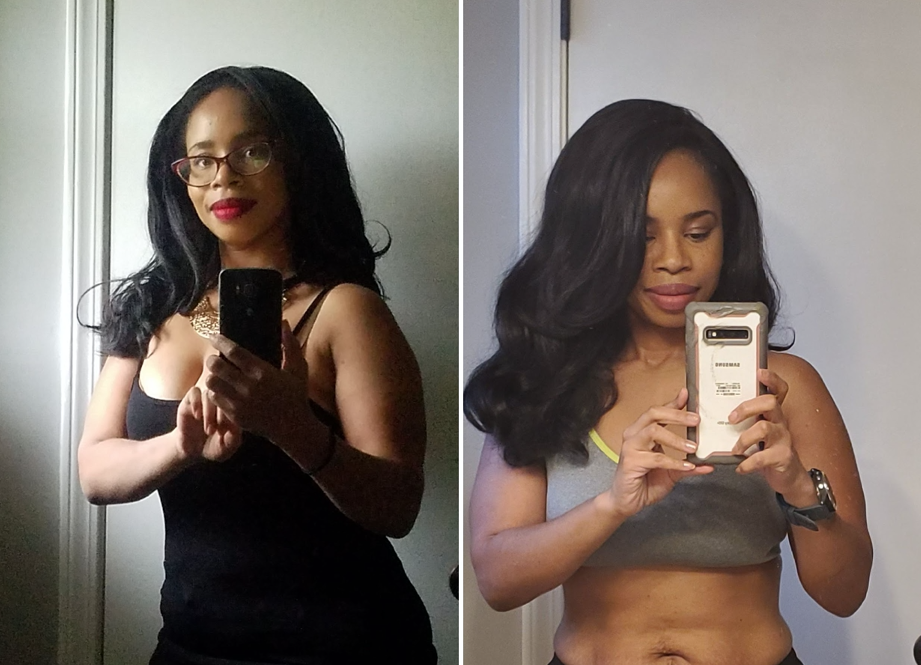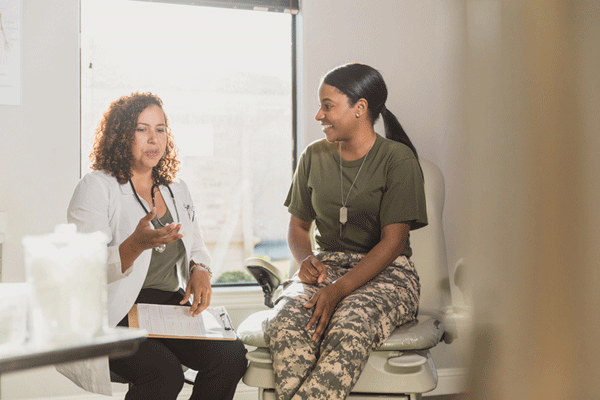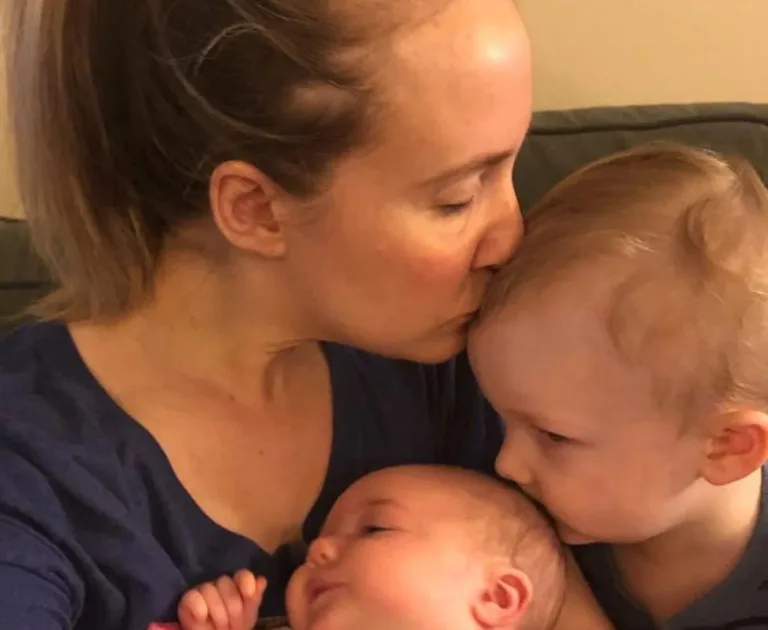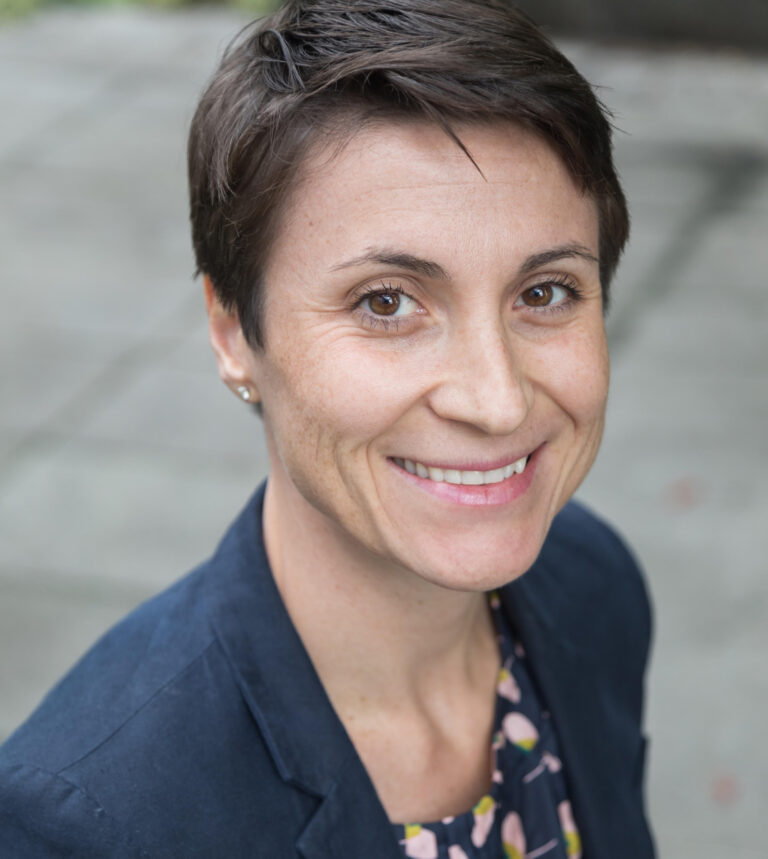As told to Diana Whitney
I was pregnant with my first son when I was diagnosed with uterine fibroids in 2001. I was serving in the Navy at the time, and I finally understood why I’d been struggling to keep my weight at a certain threshold. It wasn’t my diet or my fitness — it was the fibroids.
For years after that, I had incredibly heavy, painful periods. Every month it was like cleaning up a crime scene. I used those big hospital pads, and I was still scared of the bleeding. I had to keep running back and forth to the bathroom to check on it.
But I didn’t seek medical care because I thought it was normal, and I was focused on raising my two kids, having a family. We moms tend not to focus on the internal.
Then my husband passed away suddenly from a brain aneurysm at age 34. That year, the pain from the fibroids became unbearable, maybe from the stress and grief. I came to realize that I was the only parent my sons had left, and it was my responsibility to take care of my health. When my boys were 12 and 14 years old, I finally decided to pay attention to myself.
I didn’t have health insurance at the time because my husband had been our family’s provider. So, I waited until I got a new job working at the University of Memphis, and then I went to my gynecologist. I walked right into the room and told her, “I need a hysterectomy.”
She was surprised, but when I lay down on the table and she touched my stomach, she said, “Yeah, you’re a great candidate.”
She could tell just from an external exam how bad my fibroids were. I told her the pain was getting to be too much. There was a family connection — my mom and both of my sisters had fibroids as well. My twin sister had gotten a hysterectomy a few years back, and she’d urged me to get one. I kept ignoring her, telling her I’d be fine, but the fibroids were getting bigger and I knew it was time. After 17 years, I couldn’t be in pain anymore.
I scheduled the surgery for October 2018. Right afterward, I could feel the difference in my body. My gynecologist told me I had seven to eight fibroids, and I’m a tiny person, 5 feet 3 inches. She didn’t know how I’d lived like that. It was like I’d been eight months pregnant.
For years, I’d been working out with a trainer, getting into great shape, but I still couldn’t lose weight or reach my fitness goals. I would do sit-ups with my trainer, but the pain was horrible. Now I can do core workouts without pain. I can finally see my abs! And I don’t have to worry about monthly crime scenes. My granny panties are in the landfill, along with the hospital pads.
But the first weeks after the surgery were pretty rough. I wasn’t able to work out, and I lost a lot of muscle. I was dealing with painful stitches because I’d had an abdominal hysterectomy. The surgeon cut me open like a fish — the fibroids were so big it was the only way to remove them.
One downside was I still felt like I was having my period. I had all the symptoms: PMS, bloating, moodiness, body temperature changes. Eventually my hormones found their balance, but it took months. I still have my ovaries, although everything else is gone.
I tell women who are scheduling a hysterectomy to have everything planned out ahead of time. Make sure you have snacks next to your bed in a cooler, lots of water, books, movies and pillows to support you when you’re coughing post-surgery. You’ll need a friend or family member to help out, because there will be things you won’t be able to do initially — like get out of bed. I was blessed to have my teenage sons help me during my recovery and a great support system of friends.
I talk openly about my hysterectomy because women don’t talk about these things. There’s a taboo around female bodies, and I’m tired of the taboo. We need to speak honestly about our uteruses — they’re a part of our womanly experience.
Getting the hysterectomy was the best decision I’ve ever made. It’s been almost two years, and I’m in the best shape of my life. I’m training hard and competing in Spartan races in honor of my husband, who was a fitness junkie. He was training for a Spartan race before he died, and he encouraged me to challenge myself. Since he passed, my perspective has changed. Everything that I’m afraid to do, I’m going to do it.
Lakisha Watson-Moore is a U.S. Navy veteran, mom, widow, workout junkie, athlete and future coach living in Tennessee. She works as a political organizer and is training for her next Spartan Race. Follow her workouts on Instagram @bougie_black_girl















